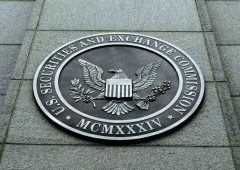German Officials Push to Reclaim Gold from US Reserves
07.04.2025 11:00 2 min. read Alexander Stefanov
There is growing debate in Germany over the country’s gold reserves stored in the United States, as some officials push for more transparency and control.
Germany currently holds more than $109 billion worth of gold at the New York Federal Reserve, but rising geopolitical tensions are prompting calls to reassess this arrangement.
Michael Jäger, from the European Taxpayers’ Association, is at the forefront of the movement, urging the German government to immediately repatriate its gold.
Jäger argues that with global power dynamics shifting and discussions about new debt in Berlin and Brussels, it is vital to secure direct access to the reserves. He emphasizes that, at the very least, Germany should be able to physically inspect the gold bars stored abroad.
Adding to the call for action, Markus Ferber, a member of the European Parliament, insists on regular checks to verify the reserves. He believes that Bundesbank officials should personally count and document the gold bars to ensure their accuracy and safety.
Similarly, Marco Wanderwitz from the CDU party echoes this sentiment, advocating for either frequent inspections or a complete repatriation of the gold.
The discussion has gained further momentum following comments from tech billionaire Elon Musk, who recently proposed that an audit of Fort Knox be livestreamed. Fort Knox, which holds a significant portion of the US gold reserves, has not undergone an audit since 1974, raising questions about transparency.
Despite these concerns, Germany’s Bundesbank remains confident in the current arrangement. A spokesperson for the Bundesbank recently reiterated President Joachim Nagel’s stance, affirming the institution’s trust in the New York Federal Reserve as a reliable custodian for Germany’s gold.
-
1
Big Funds Sell $51B in May, But Buybacks Cushion U.S. Stock Market
20.06.2025 10:00 2 min. read -
2
BlackRock’s Bitcoin ETF Now Out-Earning Its $624B S&P 500 Fund
03.07.2025 10:00 1 min. read -
3
Canton Network Developer Secures $135M to Expand Institutional Blockchain Use
25.06.2025 12:00 1 min. read -
4
AI Revolution Could Send Nasdaq Soaring, Says Market Expert
19.06.2025 14:00 1 min. read -
5
Reddit Might Embrace Worldcoin’s Iris Scan to Verify Users Without Doxxing
21.06.2025 14:00 2 min. read
Ripple Selects BNY Mellon as Custodian for RLUSD Stablecoin Reserves
Ripple has chosen global banking giant BNY Mellon to act as the primary custodian for reserves backing its enterprise-grade stablecoin, Ripple USD (RLUSD).
Here is Why the Fed May Cut Rates Earlier Than Expected, According to Goldman Sachs
Goldman Sachs now expects the Federal Reserve to begin cutting interest rates sooner than previously anticipated, forecasting the first reduction as early as September 2025.
Robinhood Faces Scrutiny from European Bank Over Tokenized Stock Offerings
Lithuania’s central bank has reached out to Robinhood for further details regarding its newly launched stock token products, following a public distancing by OpenAI from the initiative.
USA Imposes Tariffs on Multiple Countries: How the Crypto Market Could React
As President Trump accelerates his tariff strategy ahead of the August 1 deadline, new White House letters reveal formal trade warnings sent to multiple nations, including Tunisia, Cambodia, Indonesia, and others.
-
1
Big Funds Sell $51B in May, But Buybacks Cushion U.S. Stock Market
20.06.2025 10:00 2 min. read -
2
BlackRock’s Bitcoin ETF Now Out-Earning Its $624B S&P 500 Fund
03.07.2025 10:00 1 min. read -
3
Canton Network Developer Secures $135M to Expand Institutional Blockchain Use
25.06.2025 12:00 1 min. read -
4
AI Revolution Could Send Nasdaq Soaring, Says Market Expert
19.06.2025 14:00 1 min. read -
5
Reddit Might Embrace Worldcoin’s Iris Scan to Verify Users Without Doxxing
21.06.2025 14:00 2 min. read


